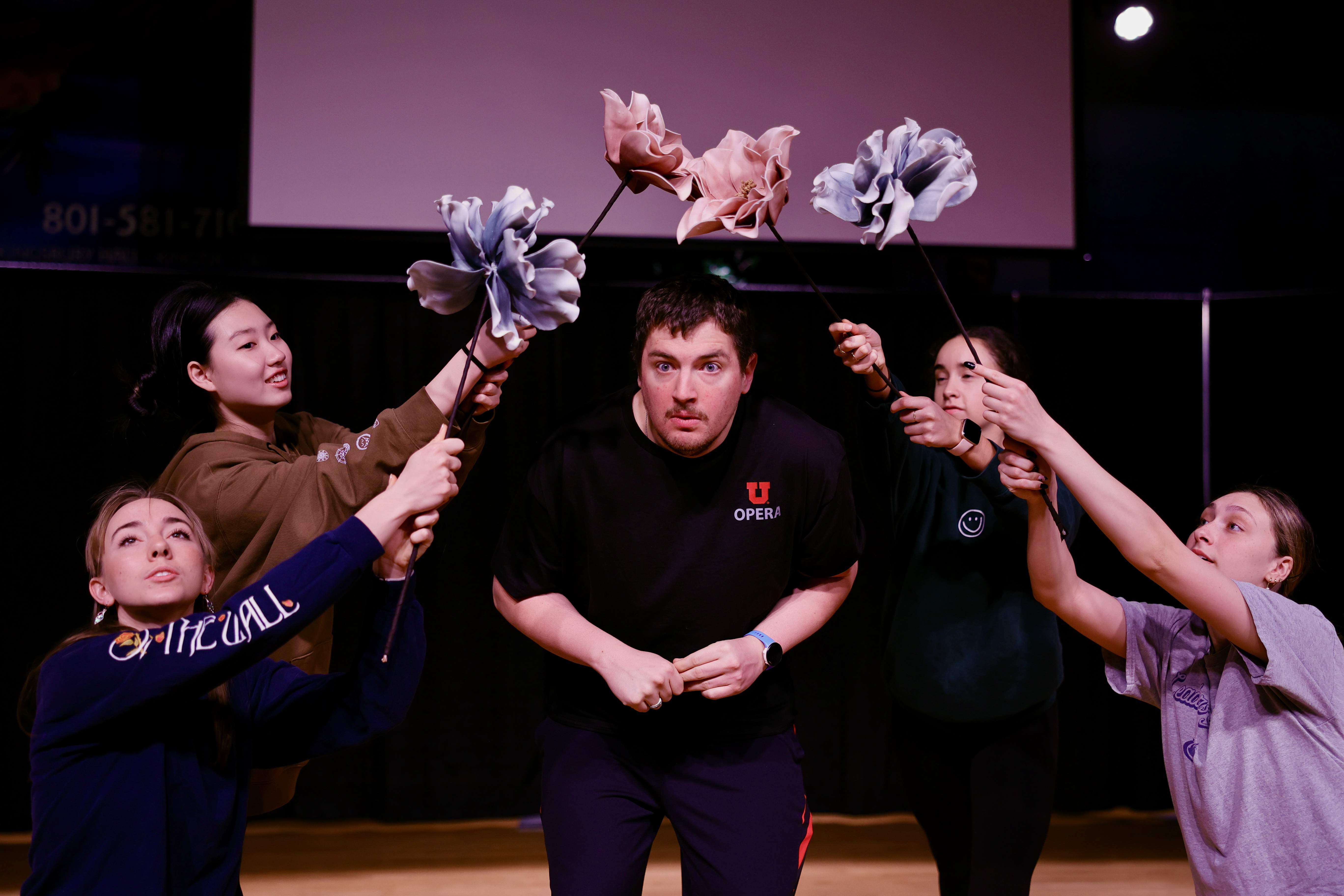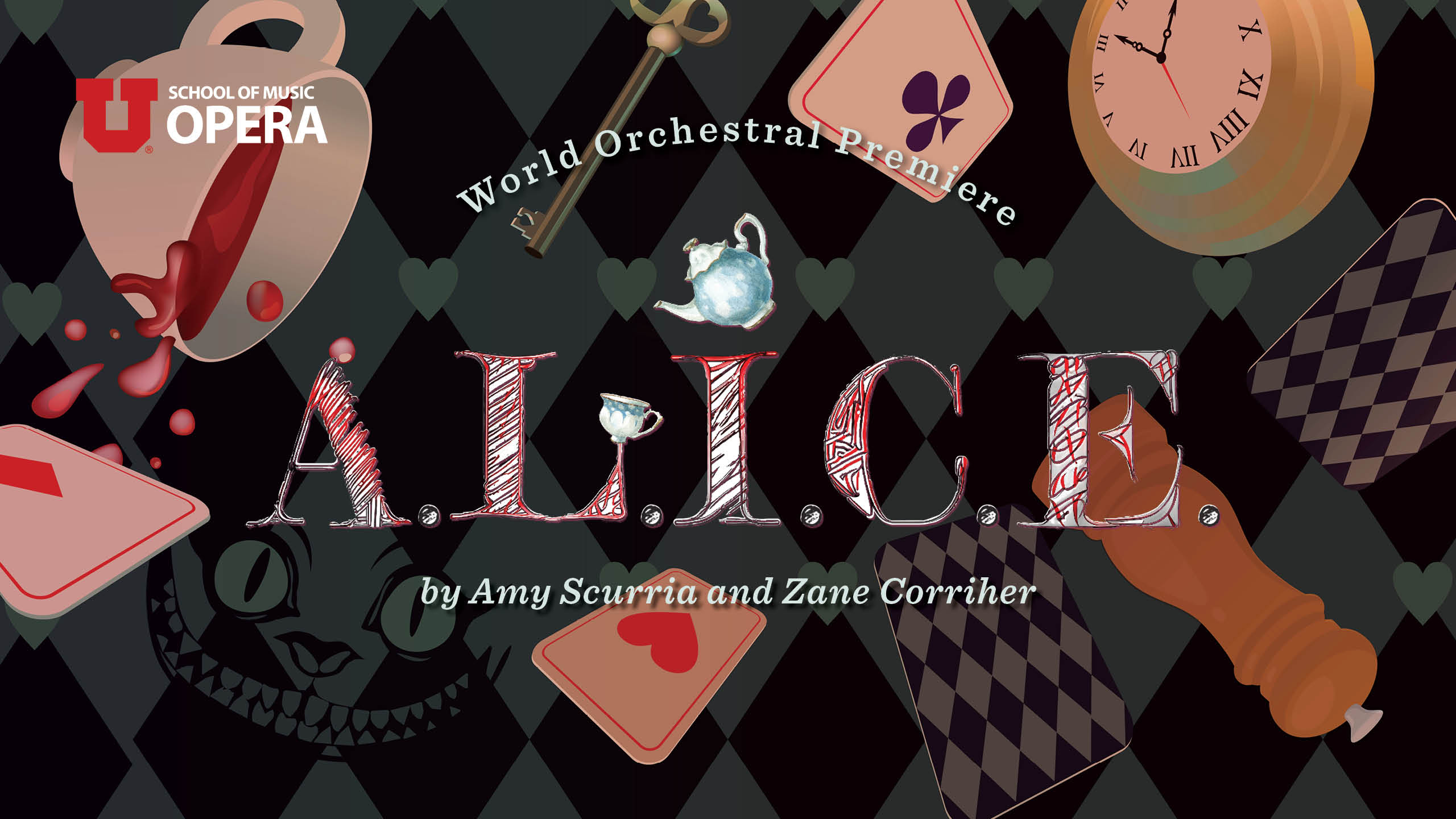For composer Amy Scurria, Alice from Lewis Carroll’s beloved “Alice’s Adventures in Wonderland” was an obvious, albeit unconventional, opera heroine waiting to take the stage.
Historically, women are not often the central characters of opera, as aficionados will know. Even when featured, their fates are dark: murder, insanity, violence, heartbreak.
This has never sat well with Scurria. While completing her doctorate in music composition at Duke University, she was validated and empowered by “Opera, or the Undoing of Women,” a 1979 book by French philosopher Catherine Clément, who shared the frustration that she could not find herself represented in a medium she loved. Scurria solidified her creative mission.
“This my opportunity to change this paradigm in whatever way I can,” she said. “My goal is to create operas with female leads who not only don’t die or befall some tragic fate, but they thrive.”
Enter “A.L.I.C.E.”
Scurria’s first memory of the beloved character is at age 3, the same year as her earliest memory of falling in love with music. By age 8, she was composing.
“I got interested in writing opera pretty young because all of my works connect to either stories, or poetry, or some kind of extra-musical idea,” she said. “Early in my career, I was composing choral and orchestral music, and was thrilled by the idea that I could combine the two in opera.”
Vital in the process of her adaptation of the book to opera, which began in 2019, is Scurria’s life partner and astute storyteller Zane Corriher.
“I write poetry and create music, but combining them was challenging,” she explained. “I had an idea for a nonsense aria. My process for creating that was to go to the thesaurus and look up all the words for ‘nonsense,’ then count the syllables and organize them in some kind of mathematical way.”
Corriher jumped at the chance to write the libretto. “I think our collaboration together was where it really started to take shape,” Scurria said. “We could have conversations together about what was the driving force behind telling the story.”
Pretty immediately, the two discovered themes in Alice’s story beyond typical depictions of unbridled childhood imaginings, and the loss of such freedom in adulthood. The fundamental question asked by the caterpillar felt central: “Who are you?” Influenced by Joseph Campbell’s “Hero’s Journey,” Scurria and Corriher’s “A.L.I.C.E” is a quest for identity and self-worth, relatable to the widest spectrum of audiences.
The moral? You are enough.
Then, amidst the writing process, Scurria’s own story was forever altered. She was late diagnosed as autistic. The message became that much more poignant, and urgent.
“The autism diagnosis made sense of the way Amy made sense of Alice,” Corriher said. “[The opera] was always written through the lens of the autistic experience. We just didn’t know, we didn’t have the word for it.”
“I started to understand my life through a new lens, which was the first time I really understood myself,” Scurria said. “There are many aspects of me that make me feel like other, and that’s another reason I related to Alice. I felt very much outside of the mainstream.”
In 2023, Scurria was shopping “A.L.I.C.E” at the National Opera Association conference when she met Robert Breault, director of the University of Utah Opera. The encounter was kismet.
“I took the opportunity to go back to my hotel room and listen to some of her music, and I got that feeling when you hear something, and it just touches you,” Breault said.
Premiering the full orchestra version of “A.L.I.C.E” at the University of Utah is special for myriad reasons.
Perhaps most exciting is that students can interact with Scurria, and leave their unique mark on her work, which is constantly evolving.
“We spend a lot of time wondering what Mozart meant by things—and it’s all conjecture,” Breault said. “The process for this has been entirely different because this is the first time that I’ve directed a piece by a living composer. At our first rehearsal, Amy and Zane were on the big screen in the room with us, talking about their perception and plan.”

Informed by Scurria’s autistic experience, and a desire to share the piece with all, U Opera is also offering a sensory friendly matinee, for the first time ever.
Thanks to a grant from the Council of Dee Fellows, Scurria and Corriher will be in attendance for the premiere, culminating the entire collaborative process. For Breault, “A.L.I.C.E.” is a rare opportunity for singers to develop roles not yet codified in the canon.
“They’re not developing these roles based on recordings, which sets up ridiculous standards,” he said. “In this case, they can all take ownership. We’re really encouraging them to invest and then enjoy the benefit of that, which is going to mean satisfaction when they get to sing it.”
Accommodations for the performance include adjusted onstage lighting and sound, no lighting being focused on the audience, no pyrotechnics or sudden loud noises, and the house lights of the theatre remaining on, at a low level, during the performance. In addition, guests are free to talk, leave their seats, or move freely during the performance. Guests are also welcome to bring hand fidgets or use their mobile devices while in the auditorium.
“Essentially, this piece is about the journey of Alice through a lot of challenges, or rabbit holes,” Breault said.” In the end, she has a moment of actualization that is just stunning. The first time I saw it, tears were rolling down my face. I think this opera is going to work at many different levels. Kids are going to see it one way, adults will be able to see it in another—and hopefully it’ll touch everybody.”

“A.L.I.C.E”
Kingsbury Hall
Apr 12 @ 7:30 p.m.
Apr 13 @ 2:00 p.m.* Sensory-friendly
Apr 13 @ 7:30 p.m.
